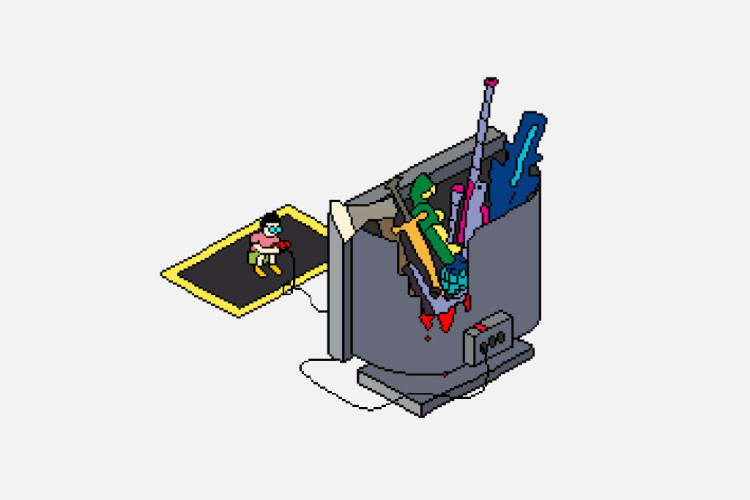
There are so many things that we do so often we no longer think about how or why we do them. Breathing, for instance, is a perfect example. Unless we meditate or do certain sports that require us to be conscious of the way we breathe, we take the process for granted. I am no biologist, meaning that I am not going to talk about how our respiratory system functions. So let us move away from the involuntary actions that happen in our bodies, and focus on the various types of involuntary actions that only become involuntary because we are accustomed to them, not necessarily because we need them to survive.
I am referring to habits.
Habits often begin with one conscious decision, but they gradually evolve into actions that our bodies just remember how to do. In the long run, the starting point becomes irrelevant – though most likely it is because we come to think of them as having no beginning. There are individual habits and there are collective habits. Culture falls into the latter category. When a group of people decides to do certain things – whether it is the way they talk, dress or eat – and do it over and over again, they will eventually turn into habits. It is certainly discouraging to think of culture – something that we consider being a major part of our identities – as a mere collection of habits. But the reason it seems more special than our personal rituals is because we attach meaning to it. To put it bluntly, culture is just a product of the romanticization of habits.
The list of habits that make up a culture consists of too many elements, so for this series, I will only focus on the habit of reading. While reading is not necessarily a core component of every culture (some societies that highly value oral or visual traditions even disregard it all together), it has become a very large part of the globalized “modern culture.” One’s ability to read has become so important because we live in a world where a large amount of information is available in the written form. Today’s education systems make sure that children learn how to read as soon as possible. As a result, reading becomes one of the standards used to determine our role in society. And it does not stop there – even countries are ranked according to their literacy rates.
If you are reading this piece, then reading has already become one of your habits. It does not matter whether you enjoy reading or not. In this case, reading’s likeable qualities are not the issue because habits are more about repetition rather than enjoyment. The presence of words in our ever-expanding man made environments reinforces our habits despite our preferences. Even the visually or musically inclined need to gather information from words. We do not think about it, but we read all the time. As I have mentioned earlier, a habit is something that the body remembers how to do. As children, we were taught how letters – or characters, in the case of a number of Asian languages – sound when they are combined. Once we have mastered that, we then begin to learn what words mean. The more words our eyes lay upon, the more we recognize, and it is this accumulation of words that makes us forget about the time when we still knew none.
Reading is a habit as much as it is a tool for us to communicate with, and be communicated to. But it is also more than that. Being able to read does guarantee more access to information, but information is not necessarily knowledge. Reading, then, ought to be a habit of the mind – something that engages and enriches our intellect – as opposed to a sheer mechanical process that involves the eyes and the brain when we associate meaning with the words we see. Reading should not be a passive endeavor.
As James Mangan wrote, “What you read is important, but not all important. How you read is the main consideration. For if you know how to read, there’s a world of education even in the newspapers, the magazines, on a single billboard or a stray advertising dodger.” If we simply swallow all the words we read, even the most serious books will not enlighten us. But if we have trained ourselves to consume texts with care, the mind will naturally digest every single bit of information into something profound.
It is not easy to start a new habit, and even harder to change an old one. But the problem with change is that it is hard to tell if we are making progress or not. Even without intending to change our reading habits, there are many external factors that are already doing the job for us – the Internet and other forms of technology being the most prominent. The literary world has recently been quite occupied with the endless debates for and against e-books. Is the shift from paper-based books to electronic books going to benefit us? Studies have shown both hopeful and bleak results, but there is also a limit as to how much research can prove and predict. As idealistic as it sounds, it all comes down to how we want to cope with our constantly changing environment.
In the effort to pin down where our current reading habits went wrong, and where they went right, I invite you to take a closer look at the way six different forms of writing – starting with the novel – can be read. By doing so, I hope that we can opt for a healthier reading habit. As challenging as it may seem, it is never too late to try to change for the better.











